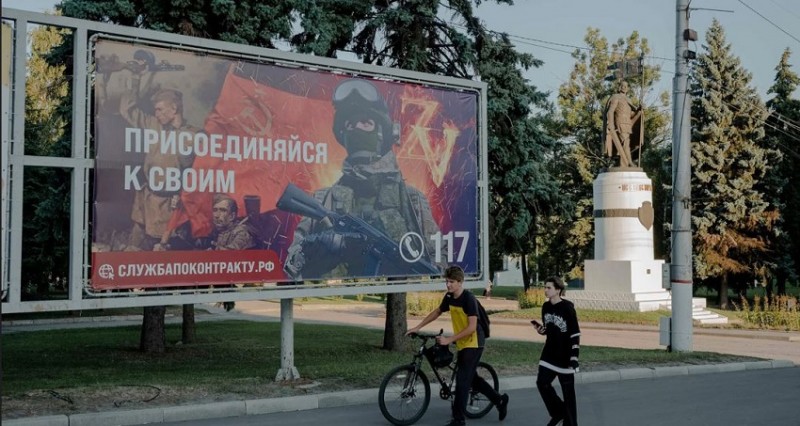
Russia is working to transform the unexpected Ukrainian incursion into its Kursk region into an opportunity for military gain. Two weeks after the surprising advance by Ukrainian forces, Russia has managed to slow the invasion, reinforcing its defense lines and setting the stage for a more prolonged battle. This conflict has significant political implications for both nations.
Russian President Vladimir Putin has vowed to respond decisively to what is the first invasion of Russian territory since World War II. However, instead of immediately repelling the Ukrainian forces, Russia has focused on containment. This has led to speculation regarding Russia's capacity to expel the invaders, given the strain on its military resources.
The surprise attack on Kursk highlighted ongoing intelligence weaknesses within the Russian military and exposed a shortage of battle-ready reserves. Ukraine’s swift progress has also shaken the world’s view of Russia's dominance in what has often seemed like a slow but steady campaign of attrition.
From Moscow’s viewpoint, however, the invasion might offer a chance to weaken Ukraine’s already limited resources while attempting to reclaim lost ground. Russian military analysts argue that Ukraine's gains may be short-lived and could eventually work in Russia’s favor. Some experts even suggest that what initially appeared as a brilliant strategy by Ukraine could soon turn into a trap.
"The invasion of Kursk has only extended the war of attrition, where Russia holds a resource advantage," said Vasily Kashin, a political scientist based in Moscow.
While the battle is still in its early stages, Ukraine might yet deploy additional reserves or carry out a surprising counterstrike that could shift the tide once more. The initial days of the Kursk invasion shook Russia, with images of surrendering Russian troops spreading across the nation and undermining Putin's narrative of a distant war fought by elite forces.
However, the current pace of the battle has given Putin time to strategize. Instead of weakening his political power, the invasion may encourage Russian citizens to rally around the government. Although the Kursk invasion was a blow to Russia's reputation, experts believe it is unlikely to trigger significant unrest or rebellion within the Russian elite.
Military experts note that Russia's commanders are now faced with difficult decisions. One option could involve mustering a larger force to push the Ukrainian troops out of Kursk. Another approach might rely on Russia's superior artillery and air power to gradually wear down the defenders. Both strategies, however, would require weeks or even months to implement, pulling resources from other critical areas of the conflict.
While Putin has so far refrained from announcing a new wave of mobilization, his next steps remain unclear. He has made few public statements about his plans, choosing instead to focus on calmer, everyday activities, which stand in contrast to the initial urgency of his response to the invasion.
Despite initial unpreparedness, Russia has managed to stabilize the front in Kursk. Analysts believe that Moscow is now preparing for a larger counteroffensive to reclaim the occupied territory. Yet, time is of the essence, as leaving Russian land under enemy control for too long could risk backlash from nationalist elements within the country.
The Kursk incursion has also revealed flaws in Russia's strategy of relying on volunteer fighters. While this approach has allowed Moscow to avoid another large-scale mobilization, it has not provided enough troops to create strategic reserves capable of addressing sudden crises like the invasion of Kursk.
Even as Russia focuses on containing the Ukrainian forces in Kursk, it has continued to make advances in other parts of Ukraine, particularly in the eastern Donbas region. Ukrainian forces have reportedly redeployed some units to support the Kursk offensive, potentially enabling Russian gains in other areas.
Though the long-term impact of Ukraine's move into Kursk remains uncertain, one thing is clear: the war has expanded to new fronts, stretching the resources of both sides even further. As the conflict continues, the advantage may ultimately lie with the side that has more resources to sustain the prolonged fight. With a larger population and a more substantial industrial base, that side is still Russia.